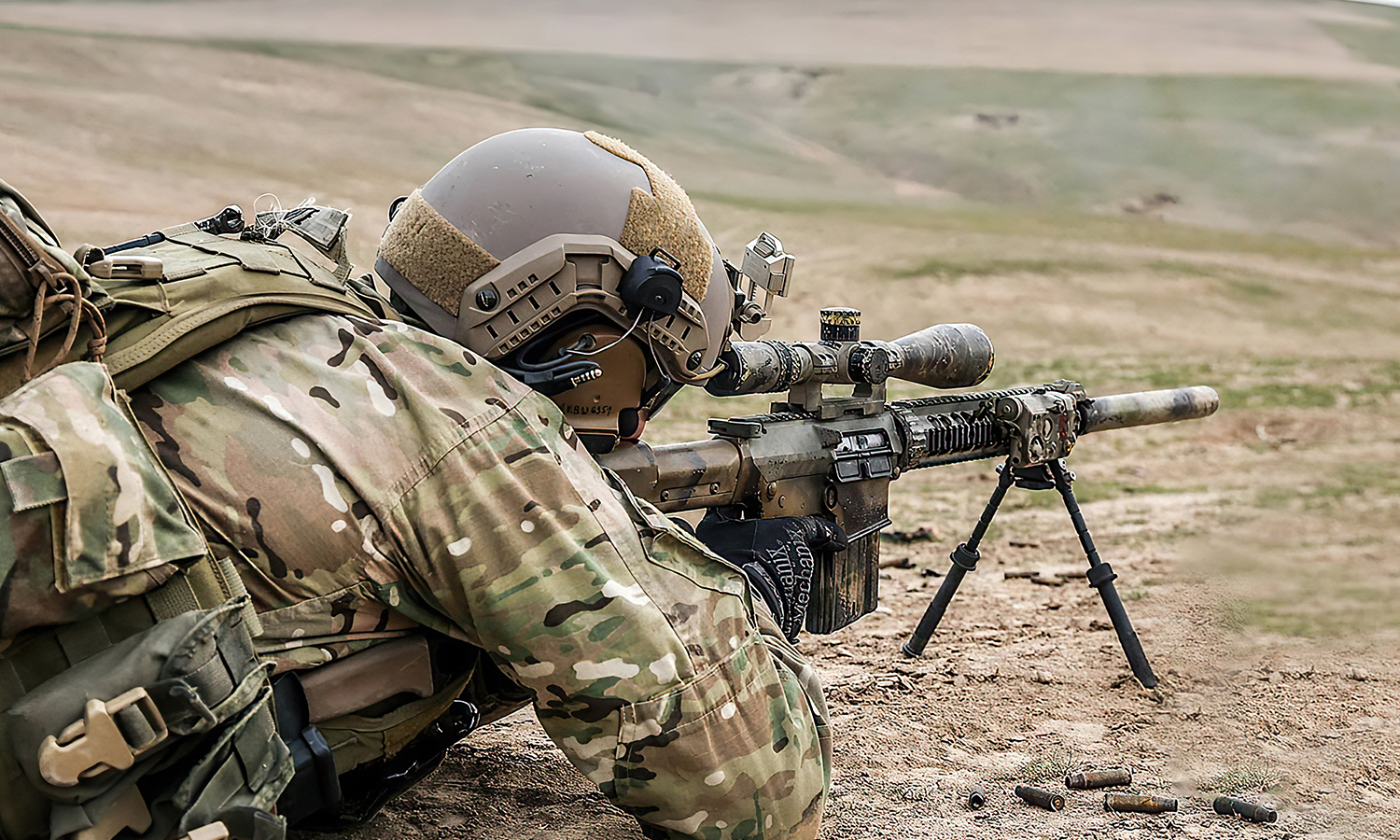
Silent death within Idlib’s border by Turkish border guards

Enab Baladi – Ali Darwish
On the fifth of last March, a bullet fired from a Turkish border guard ended the life of the child, Ahmad Yasser al-Abd; Al-Abd was playing in front of his house in the village of al-Madlusa, north of Idlib, on the Syrian border with Turkey. The scene of Turkish border guards (Gendarmerie) shooting civilians, including herders and farmers, near the border villages in Idlib countryside, has become more common among people, some Idlib residents told Enab Baladi.
Frequent deaths
Ahmad Yasser al-Abd was not the first in his family to be struck by a bullet from the Turkish soldiers. His father was wounded in his foot last year by bullets of the Turkish soldiers, Hassan Falah (the cousin of the injured) told Enab Baladi.
Al-Abd pointed out that the walls of the village’s houses bore the evidence that the Turkish soldiers targeted them several times; a sizeable number of houses had marks of gunshots. He complained that people living near the borders could not protect themselves from the Turkish border guards’ bullets, noting that some houses are only 200 meters away from the border.
The same source of the fire killed Yazan Hajj Bakir, an 11-year-old child, before the eyes of his grandfather, Hajji Abu Ahmad, 60 years, and his brother Muhammad.
Hajj Abu Ahmad desperately attempted to save his grandson by taking him to the nearest hospital immediately after getting shot on 11 February, but the child died of wounds in the hospital.
Yazan Hajj Bakir was shot dead even though he, his brother, and grandfather were not breaking any rules; Syrian farmers are allowed to access their farmlands all the time except in the afternoon or the in the evening, Bashir Hajj Bakir, a relative of Hajj Abu Ahmad, told Enab Baladi.
A deep valley separates the farmlands from the Turkish border wall, which means that civilians pose no danger to the Turkish soldiers, according to Bashir Hajj Bakir.
On 21 May, the Turkish border guards shot dead a child from the Karama displacement camp in the village of Atmeh, north of Idlib. The child was tending sheep near the war separating the Syrian-Turkish border when he was killed.
This prompted some of the camp’s youth to drop a bomb on a Turkish border guard, which led to a clash between some of the camp’s youth and the Turkish border guards. As a result, those border guards retreated from the guard post near the separation wall in the village of Atmeh.
Radwan al-Obeid is another child who was shot dead by the Turkish border guards while eating his food. Accompanied by his mother, al-Obeid was visiting his uncles in the camp of Atmeh.
The child’s uncle, Azzam al-Obeid, told Enab Baladi that a border guard even shot Radwan’s paramedics.
On 23 August, social media activists published photos of the meal Radwan was having before he was shot to death with bullets.
One demand, but Turkey shows no response
Bashir Hajj Bakir from the village of al-Madlusa contacted the mayor of the Turkish village, opposite the Syrian border, and talked about the climate of insecurity that prevails in the area created by the Turkish border guards.
It is noteworthy that the people of both the Turkish and Syrian villages are related by kinship. Besides, the people of some Syrian border villages speak Turkish because they are of Turkmen origin.
Bashir Hajj Bakir also communicated with Kaymakam and talked to him about the death incidents on the border villages. However, the Turkish side denied shooting at civilians or killing or injuring any of them.
The farmers, who own land near the border wall, are afraid to go to their lands because they might get shot by Turkish border guards at any moment. This caused harvest delays and crop losses.
The Turkish side argues that the farmers did not get permission from the Turkish police station to go to their land. Nonetheless, sometimes the farmers are prevented from going to their lands next to the wall separating Syria from Turkey even if they have permission, according to the villagers’ statement addressed to the Turkish side.
Warnings by a Turkish organization
Mazlumder–İnsan Hakları ve Mazlumlar İçin Dayanışma Derneği (The Association for Human Rights and Solidarity for the Oppressed) highlighted in a report issued on 9 June, that shootings by border guards against Syrian civilians, which “generally take place around the camps located outside the wall along the 12 observation posts of the TAF [the Turkish Armed Forces]. Some violations occur on croplands and pastures.”
The association pointed out that “no threat or danger can justify the death of children and the violation of their right to life. No measure can justify the death of their children to people who are already trying to survive in harsh conditions. These events, which make it seem like these people are neglected or perhaps even targeted intentionally, are a severe provocation. The incidents in question are too serious to be described as mistakes, and they also provoke Syrians.”
According to the association, several intelligence agencies from various countries operate in this volatile spot, intending to confuse it further and create a negative perception of Turkey, especially among Syrians. Thus, Syrian refugees could revolt against Turkey.
Mazlumder warned that should the status quo continue without intervention, the lives of soldiers at military observation posts, NGO volunteers, and health workers, who are all there to help, are at risk.
Mazlumder called on the concerned Turkish authorities to “take urgent measures” to immediately stop the violence that creates provocative acts on the Syrian border. The Turkish border guards are supposed not to be an “immediate threat” to Syrians. Plus, the Turkish authorities should not carry out an effective investigation into the deaths of Syrians on the border, punish the perpetrators and compensate the victims.
Any possibility to hold those shooters accountable?
Lawyer Ghazwan Kronfol clarified, in an interview with Enab Baladi, that legally speaking, the families of the victims cannot turn to the courts in Turkey or get a lawyer to initiate judicial proceedings against those who shot their beloved ones if they do not live on Turkish soil, even though the outcome of the proceedings would be certainly in their favor.
Efforts can be made to stop the shooting incidents on the Syrian Turkish borders, according to lawyer Ghazwan Kronfol. A committee could be established to talk on behalf of the Syrian people living near the borders about the risks they face, including injuries, deaths, and delays in harvesting their crops. Besides, the Turkish side should know that there is no need to open fire on Syrian civilians; only a warning should suffice if necessary. In addition, the reasons for targeting Syrian farmers, who frequently visit their lands, should be clarified.
The Executive Director of Syrians for Truth and Justice, Bassam al-Ahmad, stressed that it is vital to shedding light on shooting incidents by the Turkish border guards near the border strip.
Al-Ahmad pointed out that violations against Syrian refugees and in various parts of the world are highlighted more than those made in Turkey, which he attributed to political reasons that prevent this.
According to Bassam al-Ahmad, these incidents must be documented and submitted to other courts, such as the European Court of Human Rights, which opens the door to compensation and accountability mechanisms.
Randomly shooting at asylum seekers
Farmers are not the Turkish border guards’ sole target. Syrian refugees trying to flee their war-torn country and cross into Turkey are also injured, shot, or killed. The former vice president of the National Coalition for the Syrian Revolution and Opposition Forces, Samira Masalmeh, condemned the killing of eight Syrians at the hands of Turkish border guards, in June 2016, in a statement, reports France 24.
In a 2018 report, Human Rights Watch (HRW) documented that Turkish border guards fired indiscriminately at Syrian asylum seekers in border areas with Idlib governorate.
HRW accused the Turkish border guards of shooting and beating Syrian asylum seekers attempting to reach Turkey, which resulted in deaths and injuries.
HRW called on the Turkish authorities to stop “pushing Syrian asylum seekers back at the border and investigate all use of excessive force by border guards.”
On the other hand, a senior Turkish official denied the report, stressing that Turkey took in 3.5 million war refugees since the Syrian conflict began in 2011, according to Reuters.
The number of Syrians residing in Turkey reached 3,576,344 people, according to the statistics of the General Directorate of Migration Management for the year 2020.
Concrete wall along the Syrian-Turkish border
On 14 February 2015, Turkey announced that it would start building a three-meter-high concrete wall along the country’s border with Syria, starting from the Reyhanlı area in the border province of Hatay, and extending along the border strip with Syria, to prevent the infiltration of “terrorists.”
In January 2016, the Turkish authorities completed the construction of an 11.5 km wall in the town of Reyhanlı, adjacent to the border with Syria.
However, even though Turkey closed its borders to Syrian people who are fleeing the military operations in Syria in addition to imposing the tightened security measures along the border, Syrians continue to reach Turkey through smuggling routes.
In 2019, the TAF started a project to secure its borders, in a move to prevent illegal passage from Syria into Turkish territory, according to the Turkish newspaper, Daily Sabah.
A high-security panel fence and 2-meter-high poles were placed on the concrete wall—1 meter high, 2.5 meters wide, and weighing 2 tons and 300 kilograms— installed along the 21-kilometer border with Idlib.
Moreover, Daily Sabah reported that three rows of razor wire were drawn to the fork section of the poles above the fence.
The length of the border between Turkey and Syria from the side of Idlib governorate is 130 km.
Syrian farmers complain that the wall has been placed within their lands, which prevents them from accessing it.
if you think the article contain wrong information or you have additional details Send Correction
النسخة العربية من المقال
-
Follow us :
Most viewed
- Turkey and Israel at negotiation table over Syria
- Member of US Congress meets with al-Sharaa in Damascus
- Saudi Arabia mediates World Bank support for Syria: Conditional gains
- Protection of Christian holidays in Syria: Relief amid security presence
- Two years after Ghweran attack: AANES has not compensated residents

















 A
A
A
A
A
A




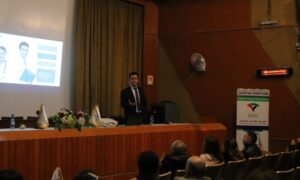
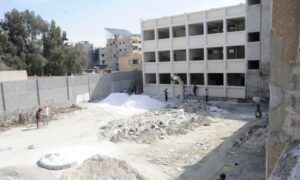

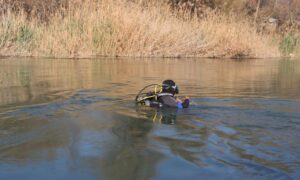
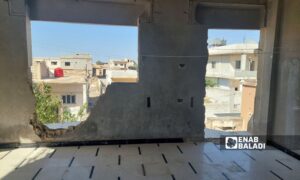
 More Society
More Society